FilteredPush and BIOSPEX

April 28-30, 2014 | Cambridge, MA
A key component in the development of iDigBio’s public participation tool, BIOSPEX, is being integrated through the efforts of iDigBio PI Greg Riccardi with FilteredPush.

April 28-30, 2014 | Cambridge, MA
A key component in the development of iDigBio’s public participation tool, BIOSPEX, is being integrated through the efforts of iDigBio PI Greg Riccardi with FilteredPush.
The NSF CSBR program is back to an annual cycle! A new call for proposals (NSF 14-564) was just released with a deadline of August 11, 2014. Please distribute this information broadly.
http://www.nsf.gov/funding/pgm_summ.jsp?pims_id=503651
Collections in Support of Biological Research (CSBR)
![]()
Note Guidance on Data Management Plans
![]()
BIO has posted revised Guidance on Data Management plans (updated 2/20/13). Please review before submitting a proposal to the Directorate for Biological Sciences.
CONTACTS
![]()
| Name | Phone | Room | |
| Anne M. Maglia | dbibrc@nsf.gov | (703) 292-8470 | |
| Roland P. Roberts | dbibrc@nsf.gov | (703) 292-8470 |
PROGRAM GUIDELINES
![]()
Solicitation 14-564
Full Proposal Deadline Date: August 11, 2014
SYNOPSIS
![]()
The Collections in Support of Biological Research (CSBR) Program provides funds: 1) for improvements to secure, improve, and organize collections that are significant to the NSF BIO-funded research community; 2) to secure collections-related data for sustained, accurate, and efficient accessibility of the collection to the biological research community; and 3) to transfer collection ownership responsibilities.
The CSBR program provides for enhancements that secure and improve existing collections, result in accessible digitized specimen-related data, and develop better methods for specimen curation and collection management. Requests should demonstrate a clear and urgent need to secure the collection, and the proposed activities should address that need. Biological collections supported include established living stock/culture collections, vouchered non-living natural history collections, and jointly-curated ancillary collections such as preserved tissues and DNA libraries.
“Those millions of bugs on pins, pressed plants, preserved animals and fossils hold a wealth of information about the adaptive abilities of our natural world, not to mention the DNA and curative uses yet to be discovered.”
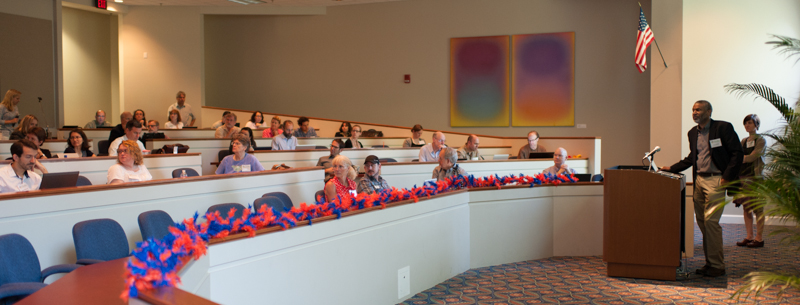
The BIOSPEX Management System—Provision, Advertise, and Lead Crowdsourcing Projects
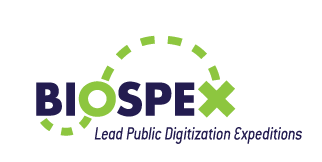
There may be no place better than the University of Texas to conduct a broad-based paleo imaging workshop. This certainly seemed the consensus the week of 29 April at the co-sponsored iDigBio and Jackson School of Geosciences imaging event.
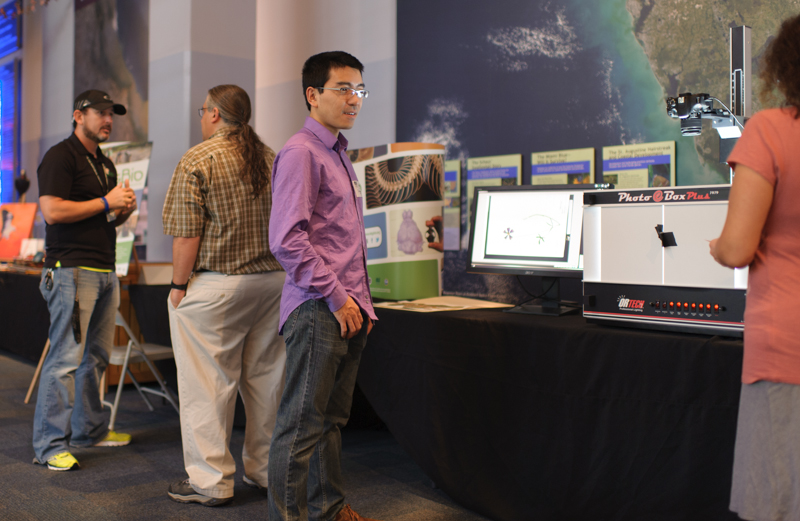
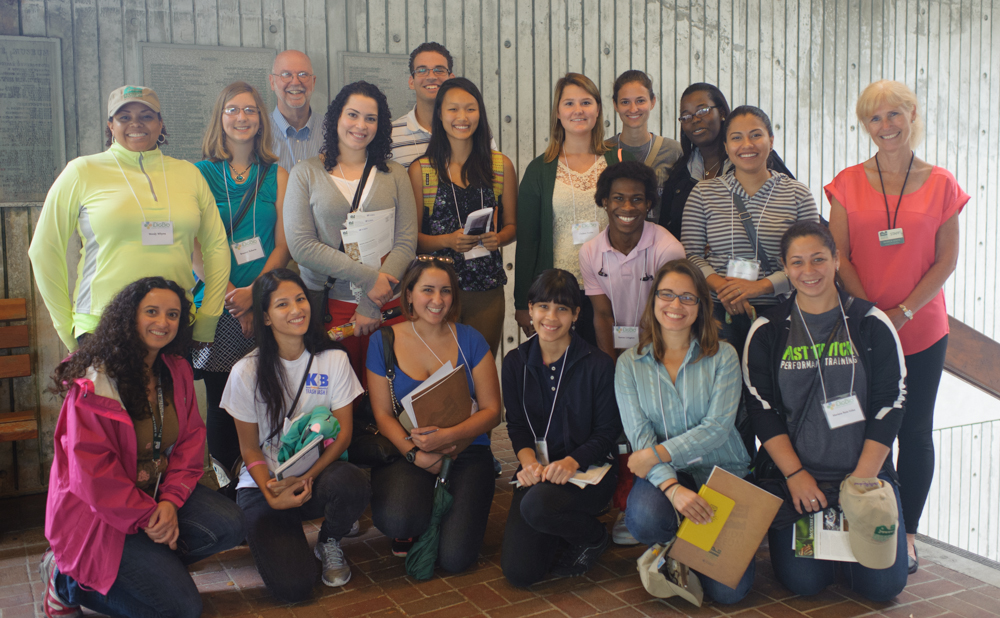 Fifteen undergraduate students from seven Florida colleges and universities converged on the Florida Museum of Natural History April 17-19 for an all-expense-paid opportunity to shadow museum professionals and explore careers in the biological sciences.
Fifteen undergraduate students from seven Florida colleges and universities converged on the Florida Museum of Natural History April 17-19 for an all-expense-paid opportunity to shadow museum professionals and explore careers in the biological sciences.
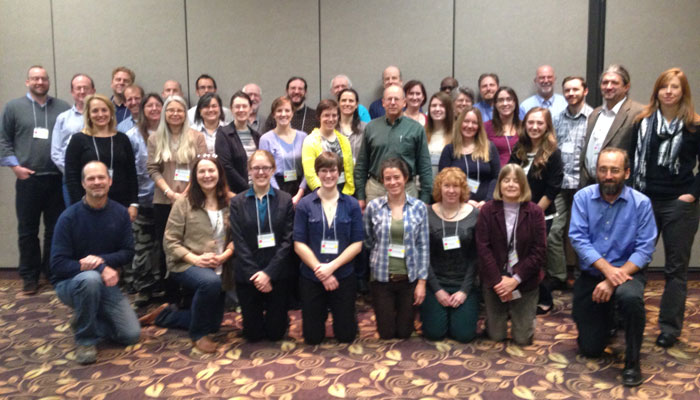
by Abigail Hollingsworth
Studies show that as girls transfer from middle to high school, they can perceive science as ‘uncool’ and subsequently loose interest in scientific careers. iDigBio postdoctoral associate Dr. Charlotte Germain-Aubrey, external vice-president of the Women in Science and Engineering (WiSE) at the University of Florida, created the WiSE Girlz Spring Science Camp to contradict this notion.
This article was generated from a webinar presented as an addendum to the iDigBio Education & Outreach Workshop held in Gainesville, FL, January 15-17, 2014. Participants were interested in finding out more about applying for grants available through the National Science Foundation (NSF) for Education and Outreach.
If you are targeting the National Science Foundation (NSF) for Education and Outreach funding, you may be looking for money in all the wrong places. With creativity and knowledge you can find the right places.